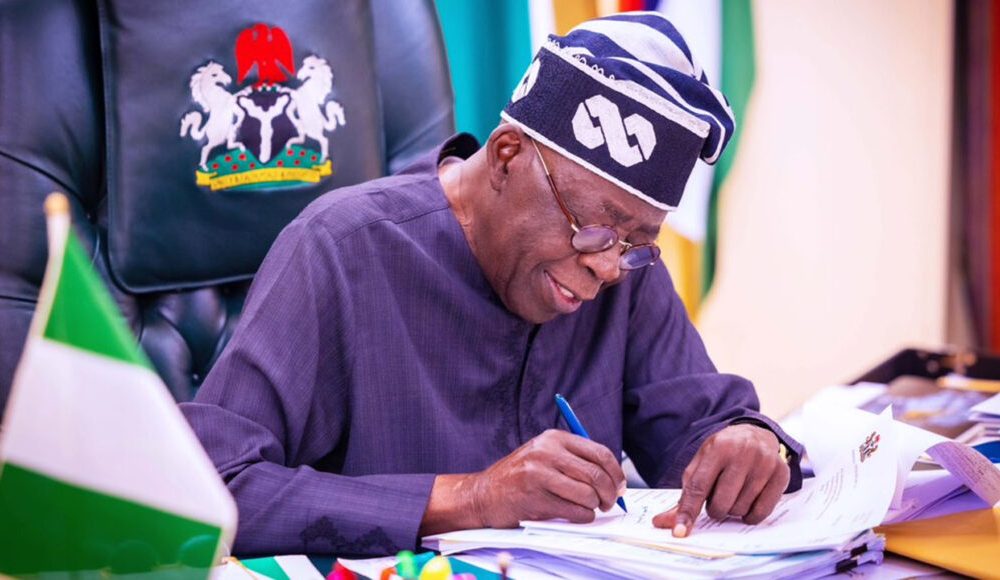The ongoing crisis in Nigeria’s oil sector is sparking widespread calls for President Bola Tinubu to relinquish his role as the Minister of Petroleum.
Despite removing the fuel subsidy immediately after taking office, Tinubu has yet to achieve the stability that many Nigerians anticipated. Instead, he recently disappointed numerous stakeholders who had hoped for substantial reforms within the petroleum ministry.In a cabinet shake-up during the 19th Federal Executive Council meeting at the State House, Abuja, President Tinubu dismissed five ministers for underperformance, reassigned ten others, and nominated seven new appointees. However, his decision to retain the Petroleum Minister role has continued to draw criticism.
Civil society groups, politicians, and citizens are urging Tinubu to step down from the position to allow a focused, transparent management of the sector.Critics, including some civil society organizations, have also called for sweeping changes in the Nigerian National Petroleum Company Limited (NNPCL) leadership, citing transparency concerns and frustration over the country’s lingering fuel crisis.
The controversy has intensified with the alleged reintroduction of the fuel subsidy and multiple delays in the launch of local refinery operations. For example, the Port Harcourt Refinery, managed by NNPCL, has failed to resume production after several promised dates, despite significant financial investments.
In collaboration with the APC Youth Vanguard for Change, the Energy Reforms Advocates of Nigeria expressed frustration last Friday that, despite a $1.5 billion approval for Port Harcourt and an additional $1.4 billion for the Warri and Kaduna refineries in 2021, none of the refineries have become operational.
Osita Okechukwu, former Director-General of Voice of Nigeria, has joined the calls for Tinubu’s resignation from the petroleum ministry, arguing that effective oversight and investigations are nearly impossible as long as the president holds both offices.
The Human Rights Writers Association of Nigeria (HURIWA) echoed these concerns. Comrade Emmanuel Onwubiko, HURIWA’s National Coordinator, argued that it’s inappropriate for Tinubu to serve as both president and petroleum minister, suggesting that holding both roles limits transparency and proper sector oversight. Onwubiko called for the appointment of a qualified Nigerian to lead the ministry, allowing the president to concentrate on broader governance issues.In defense, Bayo Onanuga, Tinubu’s Special Adviser on Information and Strategy, stated that the President supervises the ministry rather than formally holding the title of Minister of Petroleum.
According to Onanuga, Tinubu oversees two ministers within the ministry, with one focused on gas—a sector Nigeria is strategically prioritizing.
He emphasized that President Tinubu is committed to strengthening Nigeria’s gas sector, addressing a historical oversight.As the public outcry grows, observers argue that Tinubu’s continued role in the petroleum ministry has led to suspicions of vested interests and has prevented the legislative branch from effectively investigating the ministry.
While some see Tinubu’s involvement in the petroleum sector as critical due to its sensitivity, many stakeholders believe that stepping down as minister would signal a commitment to transparency and allow for independent oversight essential for reforming Nigeria’s troubled oil industry.

